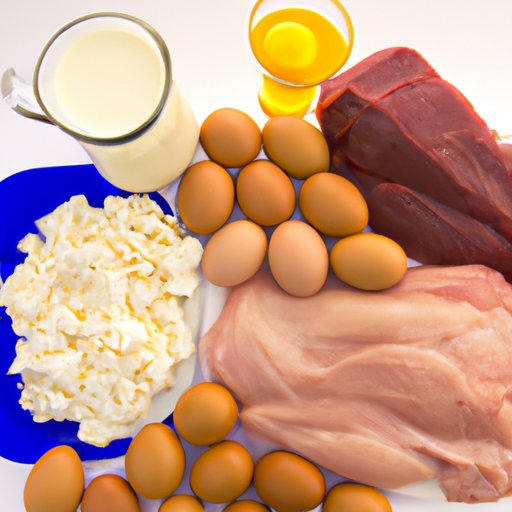Introduction
Protein is one of the three macronutrients that are essential to a healthy diet. It helps build muscle, aids in digestion, and supports many other bodily functions. But how much protein should you be consuming each day? Let’s explore what percent of your diet should be protein and how to incorporate it into your diet safely and effectively.
How Much Protein Do You Need?
The Recommended Daily Allowance (RDA) for protein is 0.8 grams per kilogram of body weight. For example, if you weigh 70 kilograms, your recommended intake would be 56 grams of protein per day. This can vary depending on your age and activity level. The American Academy of Nutrition and Dietetics suggests that adults should consume 10% to 35% of their total calories from protein.
Studies have shown that eating a high-protein diet can help with weight loss, lower blood pressure, and reduce appetite. Eating enough protein can also help prevent muscle loss and support muscle growth. Additionally, protein can help improve bone health and increase satiety after meals.
Risks of Eating Too Much Protein
While getting enough protein is important, too much protein can have negative side effects. Eating too much protein can lead to kidney damage, increased risk of heart disease, and calcium loss. Overconsumption of protein can also cause digestive issues such as constipation, bloating, and gas.

Strategies for Incorporating More Protein into Your Diet
Incorporating more protein into your diet is a simple way to ensure that you are meeting your nutritional needs. Here are some strategies for increasing your protein intake:
- Variety of Sources: Aim to include a variety of sources of protein in your diet, including lean meats, fish, eggs, nuts, beans, and dairy products.
- Meal Planning: Consider adding a source of protein to every meal. This will help make sure that you’re getting enough protein throughout the day.
- Portion Control: Pay attention to portion sizes when selecting protein sources. Eating too much of any type of food can lead to weight gain.

Factors to Consider When Choosing Protein Sources
When selecting protein sources, there are a few factors to consider. The most important factor is the nutritional value of the food. For example, some proteins are higher in saturated fat than others. Choosing leaner protein sources, such as skinless chicken breast or fish, can help keep your saturated fat intake under control.
Cost and availability are also important factors to consider when choosing protein sources. If you’re on a budget, opt for cheaper sources of protein, such as eggs, canned tuna, and beans. Also, look for sources of protein that are available in your area.
Conclusion
Protein plays an important role in maintaining a balanced diet. Getting enough protein can help with weight loss, lower blood pressure, and reduce appetite. However, it’s important to remember that too much protein can have negative side effects. To get the most out of your diet, aim to meet the Recommended Daily Allowance for protein and choose a variety of sources of protein that fit within your budget and are available in your area.
(Note: Is this article not meeting your expectations? Do you have knowledge or insights to share? Unlock new opportunities and expand your reach by joining our authors team. Click Registration to join us and share your expertise with our readers.)
